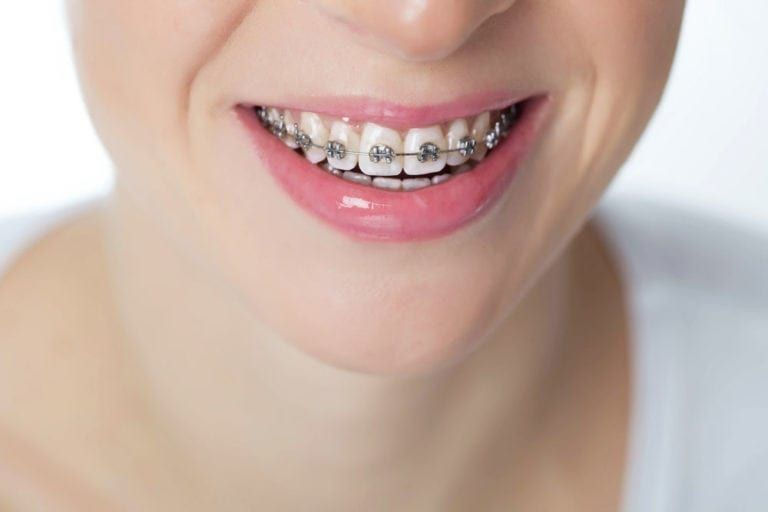The Ultimate Braces-Friendly Diet: What to Eat & Avoid
- dclinicdubai
- Apr 19, 2025
- 4 min read
Starting orthodontic treatment means making some changes—not just to your smile, but also to your daily habits, especially your diet. If you’ve recently gotten dental braces in Dubai, it’s important to understand how your food choices can impact your progress and comfort. Eating the right foods can prevent damage to your braces, reduce discomfort, and support your overall oral health. This guide outlines everything you need to know about a braces-friendly diet, from the best foods to enjoy to the ones you should definitely avoid.

Why Diet Matters with Braces:
Your braces are doing important work—gradually shifting your teeth into their ideal position. The wrong foods can interfere with that process by bending wires, loosening brackets, or causing pain and inflammation. A proper diet not only keeps your braces intact but also helps reduce sensitivity and prevents plaque buildup around brackets.
Soft Foods Are Your Best Friend:
Soft foods are ideal for anyone wearing braces, especially during the first few weeks or after adjustments. Think mashed potatoes, scrambled eggs, oatmeal, yogurt, smoothies, and steamed vegetables. These foods are gentle on your teeth and won’t cause any damage to brackets or wires. Plus, they’re easy to chew and swallow, making them a great comfort option during tender days.
Foods That Support Oral Health:
While it’s important to think about texture, you should also consider nutrition. Foods rich in calcium, vitamin D, and phosphorus help strengthen enamel and support healthy gums. Dairy products like cheese, yogurt, and milk are excellent choices. Leafy greens, soft fruits like bananas and berries, and fish like salmon are also great for maintaining oral health during treatment.
Healthy Snacks That Won’t Harm Your Braces:
Snacking doesn’t have to stop just because you’re wearing braces. You can still enjoy plenty of delicious, safe snacks. Applesauce, cheese sticks, soft granola bars (without nuts), smoothies, and soft-baked muffins can all satisfy your cravings without damaging your hardware. Just be sure to brush or rinse your mouth afterward to prevent sugar buildup.
What to Avoid with Braces:
Certain foods are risky when you have braces because they can bend wires or cause brackets to pop off. Hard foods like raw carrots, nuts, popcorn, and ice should be completely avoided. Sticky foods—like caramel, chewing gum, and toffee—can get lodged in brackets and be difficult to clean. Crunchy items like tortilla chips or hard-crusted bread can also lead to unnecessary orthodontic repairs.
Tips for Eating Out:
Dining out with braces doesn’t have to be a hassle. Many restaurants offer braces-friendly options—you just need to make smart choices. Go for dishes like pasta, rice bowls, soups, and grilled fish. Ask for vegetables to be steamed instead of raw, and steer clear of anything crunchy or overly chewy. If you’re enjoying a meal in one of Dubai’s many diverse restaurants, you’ll find that there are plenty of options that cater to your dietary needs.
Adjusting to New Eating Habits:
Changing how you eat might feel challenging at first, but it becomes easier with time. You’ll quickly learn how to chew more carefully, avoid biting into hard items, and become more mindful about your food choices. As part of your treatment with dental braces in Dubai, your orthodontist will likely provide guidance on how to adapt your diet for the best results.
Hydration is Just as Important:
Staying hydrated supports saliva production, which is crucial for neutralizing acids and keeping your mouth clean. Water is the best option—try to avoid sugary sodas and juices that can lead to plaque buildup around your brackets. If you want a flavored drink, opt for sugar-free options and use a straw to minimize contact with your teeth.
Preparing Meals at Home:
Cooking at home gives you full control over what goes on your plate. Try experimenting with soft food recipes like vegetable soups, pasta dishes, rice casseroles, and tender meats cooked in sauces. Using slow cookers or pressure cookers can help make meats and vegetables softer and easier to chew. You can even enjoy sweet treats like pudding, smoothies, and soft cookies—just be mindful of sugar intake.
Listening to Your Orthodontist’s Advice:
Your orthodontist will be your best source of personalized advice when it comes to eating with braces. Whether it’s recommending safe foods, offering product suggestions, or reminding you what to steer clear of, their insights are tailored to your specific treatment plan. If you’re undergoing treatment with dental braces in Dubai, take advantage of the high standard of care and don’t hesitate to ask for dietary recommendations.
Final Thoughts:
Maintaining a braces-friendly diet isn’t just about avoiding damage—it’s about supporting your smile journey with the right nutrition and habits. While there will be some sacrifices along the way, the benefits of staying on track are well worth it. By eating mindfully, preparing the right meals, and listening to your orthodontist, you can ensure a smooth, successful experience with your braces. Over time, these new habits will become second nature—and your reward will be a beautiful, healthy smile you’ll be proud to show off.


Comments